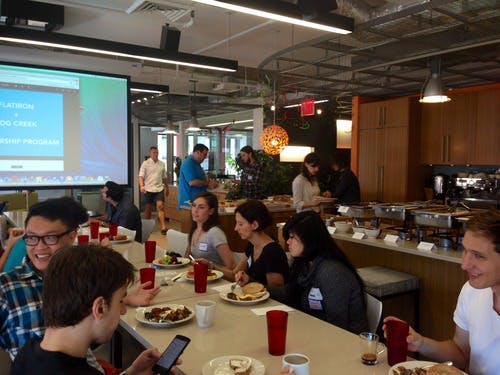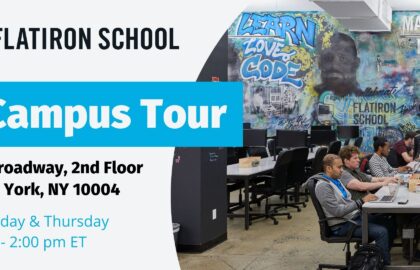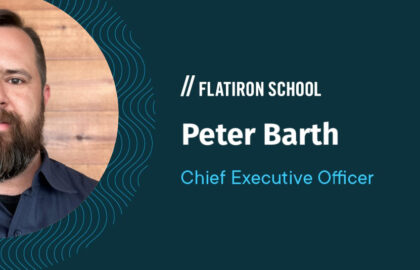Diversity as we discuss it is a proxy for diversity of thought. Simply put, different people mean different perspectives, and different perspectives mean better engineering teams and ultimately better products. In this post, Head of Job Placements at Flatiron School Rebekah Rombom shares how we’re working with tech companies to nurture diversity of thought.
At Flatiron School, we talk to a lot of companies that hire developers—and often, we end up discussing diversity. Through many, many conversations about diversity in tech, one sentiment has been very clear, and very consistent: companies want to hire more diverse technical talent.
Ultimately, we’re only successful if we’re graduating the kinds of developers companies want to hire. And companies whose products are used by millions of people want the teams responsible for building those products to represent more than one small slice of their users.
We’ve had a lot of conversations about diversity—over coffee and at dinners where we’ve brought the community together, during ad-hoc discussions at Meetups and in speaking to managers who’ve just interviewed grads, and there’s one conclusion we really love:
Diversity as we often discuss it—gender diversity, ethnic diversity, diversity of background—is a proxy for diversity of thought.
It’s diversity of thought that really matters for building great products, strong teams, and the cultures that support them. It’s diversity of thought that makes the Flatiron community special.
Last summer, Trello’s VP of People Liz Hall asked us how Fog Creek, Trello and Stack Exchange could more effectively support diverse talent. Along with Liz and the teams at those companies, we built the Fog Creek Fellowship, a mentorship program to support a group of female Flatiron grads through their first eight weeks of job hunting and post-Flatiron life.
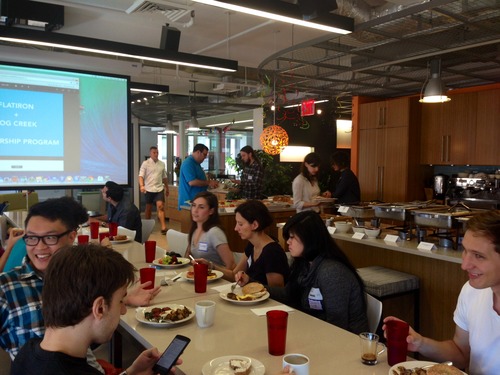
Mentees were each matched with an engineer at Fog Creek, Trello or Stack Exchange, who acted as a sounding board for technical and career questions, and helped them hone their programming skills. The host companies provided a comfortable home base for the duration of the program: access to workspace, unlimited espresso, lively lunchtime conversation with other engineers, and a generally welcoming environment where mentees could hang their hats and focus on code.
This went well — and as of today, every job-seeking mentee is getting paid to code.
Liz had noticed something else, too, which she hadn’t expected. The mentees—a group of women that included a former biomedical researcher, a mom of two, and a professional banjo player—had brought new ideas and new threads of conversation into Fog Creek’s offices. That influx of perspectives impacted how the organization marketed itself to candidates and the outside world, and helped them think of new ways to engage their own employees.
In January, Flatiron School will welcome our third class of NYC Web Development Fellows—and the first-ever class focused exclusively on 18 to 26-year olds without college degrees. These students will attend Flatiron School for free thanks to a partnership with New York City.
Many of the Fellows will not look like the majority of developers at tech companies. The life experiences the Fellows will have had leading up to their programming careers will be very different from the life experiences of most developers in companies today.
Previous classes of Fellows didn’t look like your average group of developers either, and companies really wanted to hire them. They’re now working at places like Intel, Venmo, News Corp and Etsy.
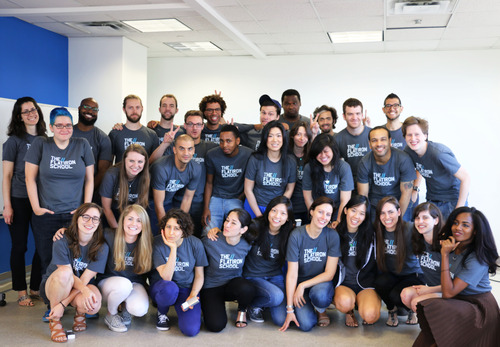
For this next class, an incredible slate of companies that includes Microsoft, Kickstarter, The New York Times, Betaworks, AppNexus, Buzzfeed, and DoSomething.org are following Fog Creek’s lead, and committing to support diverse technical talent. This summer, they’ll each hire two Web Development Fellowship grads as paid interns.
These companies, like most companies, need more developers. But more than that, they believe in building teams that more closely reflect the diversity of their users. They believe that diversity of thought will make them better.
We’re excited to launch the second iteration of the Fog Creek Fellowship this week—today and tomorrow, thirteen new mentees will meet their mentors—and a big thanks to Liz, Bethany, Laura, Joel, Michael, and all of the mentors at Fog Creek, Trello and Stack Exchange for getting the ball rolling on something that really matters.
If you’re interested in partnering with Flatiron School to support diversity within your organization, let us know or email rebekah@flatironschool.com.
